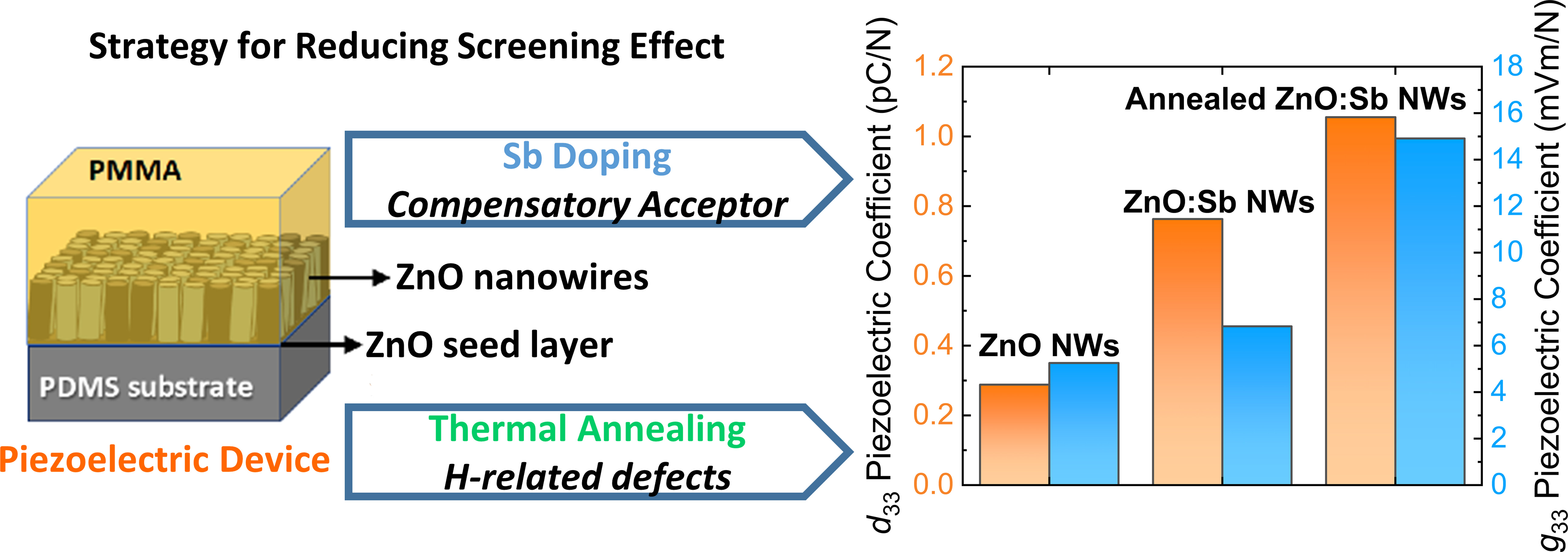Publication by José Villafuerte from the NNS Team
The article entitled "Boosting the piezoelectric coefficients of flexible dynamic strain sensors made of chemically-deposited ZnO nanowires using compensatory Sb doping" has been published in Nano Energy.



